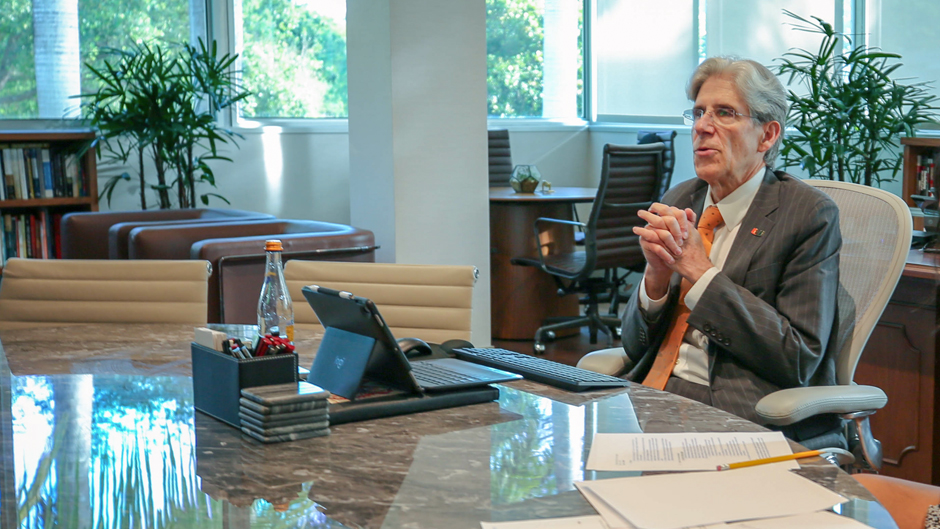Their campuses are typically bustling during this time of the year. But with students being sent home early in a move to help stop the spread of the coronavirus, the brick-and-mortar classrooms and labs of their institutions are now empty—the learning process continuing online.
The leaders of Miami-Dade’s top universities and colleges, however, aren’t bemoaning their fate but seizing the opportunity to support each other and the surrounding communities being impacted by the crisis.
And on Tuesday, during a meeting of the Miami-Dade Beacon Council’s One Community One Goal Academic Leaders Council (ALC), they brought each other up to speed on the operational status of their institutions, shared best practices, and discussed ways to help the community amid the Covid-19 pandemic.
“Every one of us has introduced measures to try to slow down the spread of the virus and to protect the health and safety of our students and employees,” University of Miami President Julio Frenk, who chairs the ALC, said during the late-afternoon meeting, conducted via the cloud-based videoconference service Zoom.
The presidents from Florida International University (Mark B. Rosenberg), Barry University (Mike Allen), Florida Memorial University (Jaffus Hardrick), and Miami Dade College (Rolando Montoya) also participated in the meeting, as did representatives from the Miami-Dade Beacon Council.
“It is reassuring that we’ve been moving in similar directions,” Frenk said, referring to the response efforts undertaken by the institutions.
He noted that the University of Miami has shifted to online instruction for the remainder of the semester, canceled events and meetings of 50 or more attendees, enacted policies to allow employees to work remotely, and closed its residential colleges, except for students who are unable to return to their permanent homes because of travel restrictions.
A former health minister of Mexico, Frenk also called attention to the fact that researchers at the University of Miami Health System are involved in efforts to help stop the pandemic, from creating diagnostic kits to working on a potential vaccine.
“There will also be issues to address when we get to the recovery phase,” Frenk said.
“We’ve got to think in a very cooperative and collaborative way,” added Michael Finney, president and CEO of the Miami Dade Beacon Council.
Miami Dade’s College’s Montoya said that with students having returned home, the institution has accelerated construction and maintenance projects on its campuses, providing much-needed employment for the region.
Tapping into the expertise of researchers and faculty members from the county’s academic institutions could help local businesses that are struggling as the crisis continues, said Jaap Donath, senior vice president for research and strategic planning at the Beacon Council, added.
And when students graduate, they will need assistance in landing jobs in the community, where their talents could serve local businesses well, said Barry University’s Allen. “We’ll have graduates heading out into a much different job market than they would have been heading out into before the virus hit,” Allen pointed out.
“We all have career services that we’ll have to deploy to a larger extent,” Frenk said.
While the duration of current disruptions remains unknown, the leaders agreed to work together to address the needs of students, businesses, and the community at large as COVID-19 unfolds.

